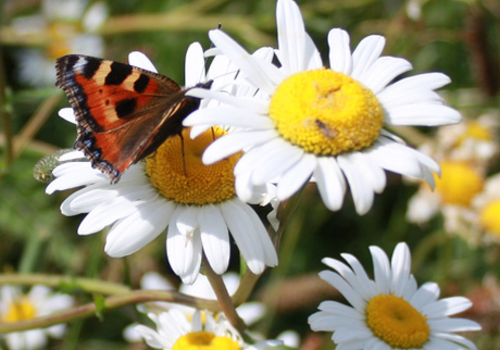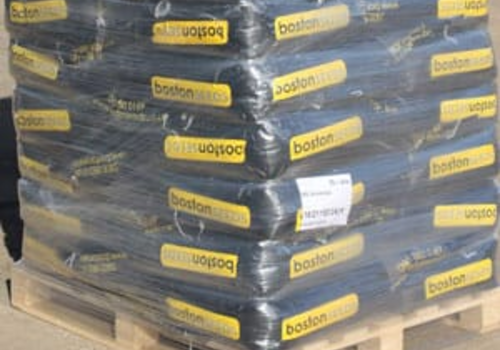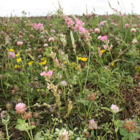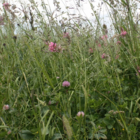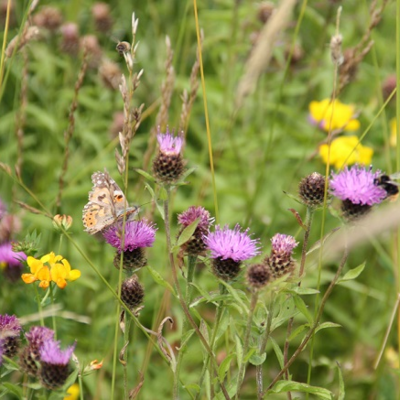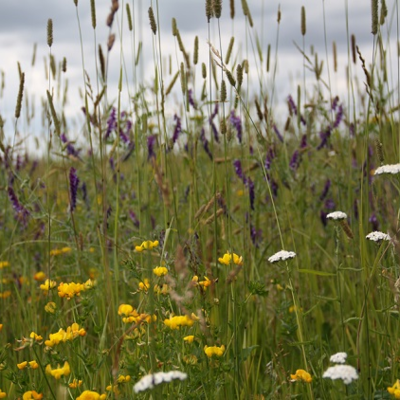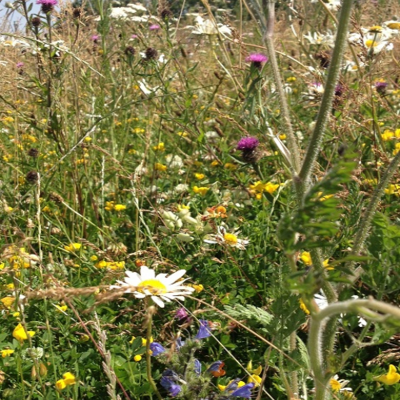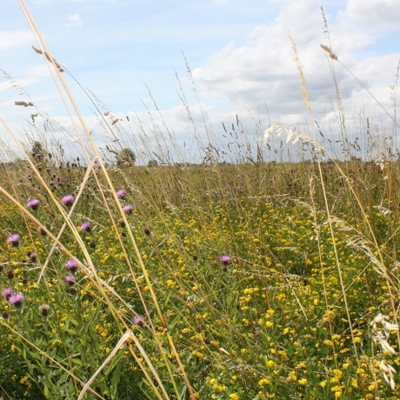CSAM3 | SAM3 | GS4 - Herbal Ley (CSS2)
Use this mixture for CSAM3 (2024) and SAM3 (2023) Sustainable Farming Incentive, and Countryside Stewardship GS4 (Herbal Leys), to establish a mixed sward of grasses, legumes, herbs and wildflowers.
- A vigorous sward with abundant legumes and herbs, suitable for productive cattle and sheep
- Provides habitat and food for invertebrates and crop pollinators
- Improves soil structure and water infiltration.
- Use for static implementation of CSAM3 and SAM3 Herbal Ley schemes
- Sow in spring or autumn for optimum establishment
- Suitable for Sustainable Farming Incentive (SFI): CSAM3 SAM3
- Suitable for Countryside Stewardship (CSS): GS1 GS4 GS8 GS14 SW1 SW2 SW3 SW4 SW7 SW8 WT1 WT2
- Contains: 40% Perennial Ryegrass, 20% Strong Creeping Red Fescue, 10% Sainfoin, 8% Meadow Fescue, 7% Timothy, 5% Smooth Stalked Meadow Grass, 5% White Clover, 2% Alsike Clover, 1.25% Lucerne, 0.5% Sheep's Burnet, 0.25% Sheep's Parsley, 0.25% Plantain, 0.25% Yarrow, 0.25% Black Medick, 0.25% Birdsfoot Trefoil
- Sowing rate: 20kg/ha. Pack size: 20kg
Mixture Specification
40% Perennial Ryegrass
20% Strong Creeping Red Fescue
10% Sainfoin
8% Meadow Fescue
7% Timothy
5% Smooth Stalked Meadow Grass
5% White Clover
2% Alsike Clover
1.25% Lucerne
0.5% Sheep's Burnet
0.25% Sheep's Parsley
0.25% Plantain
0.25% Yarrow
0.25% Black Medick
0.25% Birdsfoot Trefoil
Sowing & Establishment
COUNTRYSIDE STEWARDSHIP GS4 - LEGUME AND HERB-RICH SWARDS
What To Sow
Establish a mixed sward of grasses, legumes and herbs and wildflowers. Make sure the seed mix sown contains at least 5 species of grass, 4 species of legume and 4 species of herb and wildflower.
Ensure the sward has a minimum 20% cover of other legumes and herbs - not including white clover, creeping buttercup or injurious weeds.
Where To Sow
Due to the limited use of pesticides allowed to be used within this scheme, choose a site that has a low burden of weeds or slugs. Clovers do prefer soils that has a pH less than 6.0, but the soil can be improved with lime, manures or Phosphate and potassium. Although the use of Nitrogen fertiliser is prohibited.
How To Sow
Legumes and herbs are best sown before September to allow for good establishment before winter. For a new sowing, ensure the seed is sown at a shallow depth into a firm, clean seedbed. Alternatively, add legumes and herbs into an established grass sward by creating at least 50% bare ground and sow directly.
Information in this article is given in good faith but should not be seen as a substitute for complete guidance issued at www.gov.uk/countryside-stewardship-grants. Don’t hesitate to get in touch for further information.
Maintenance
COUNTRYSIDE STEWARDSHIP GS4 - LEGUME AND HERB-RICH SWARDS
Maintenance and Management
Leave the sward to rest for at least 5 weeks between 1st May and 31st July, to allow the flowers to provide pollen and nectar for beneficial pollinators. Outside of this time period, the area can be managed by either cutting or grazing.
Records and Evidence
Keep records as evidence of establishment and maintenance such as, but not limited to, the list below:
- Seed invoices
- Field operations at parcel level
- Contractor invoices
- Records of grazing activity
- Photographs of the established seed mix
Information in this article is given in good faith but should not be seen as a substitute for complete guidance issued at www.gov.uk/countryside-stewardship-grants. Don’t hesitate to get in touch for further information.
Buy With Confidence

